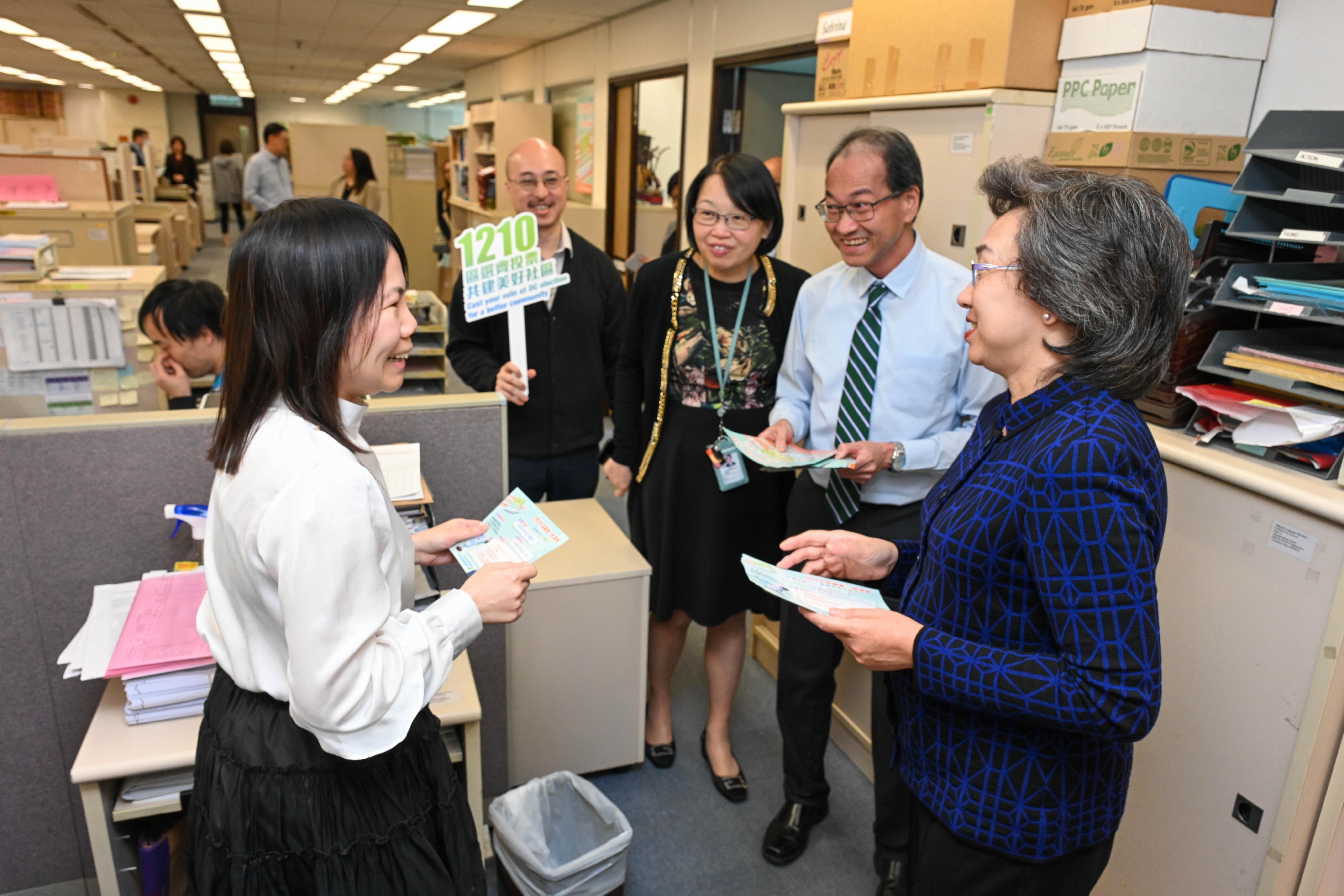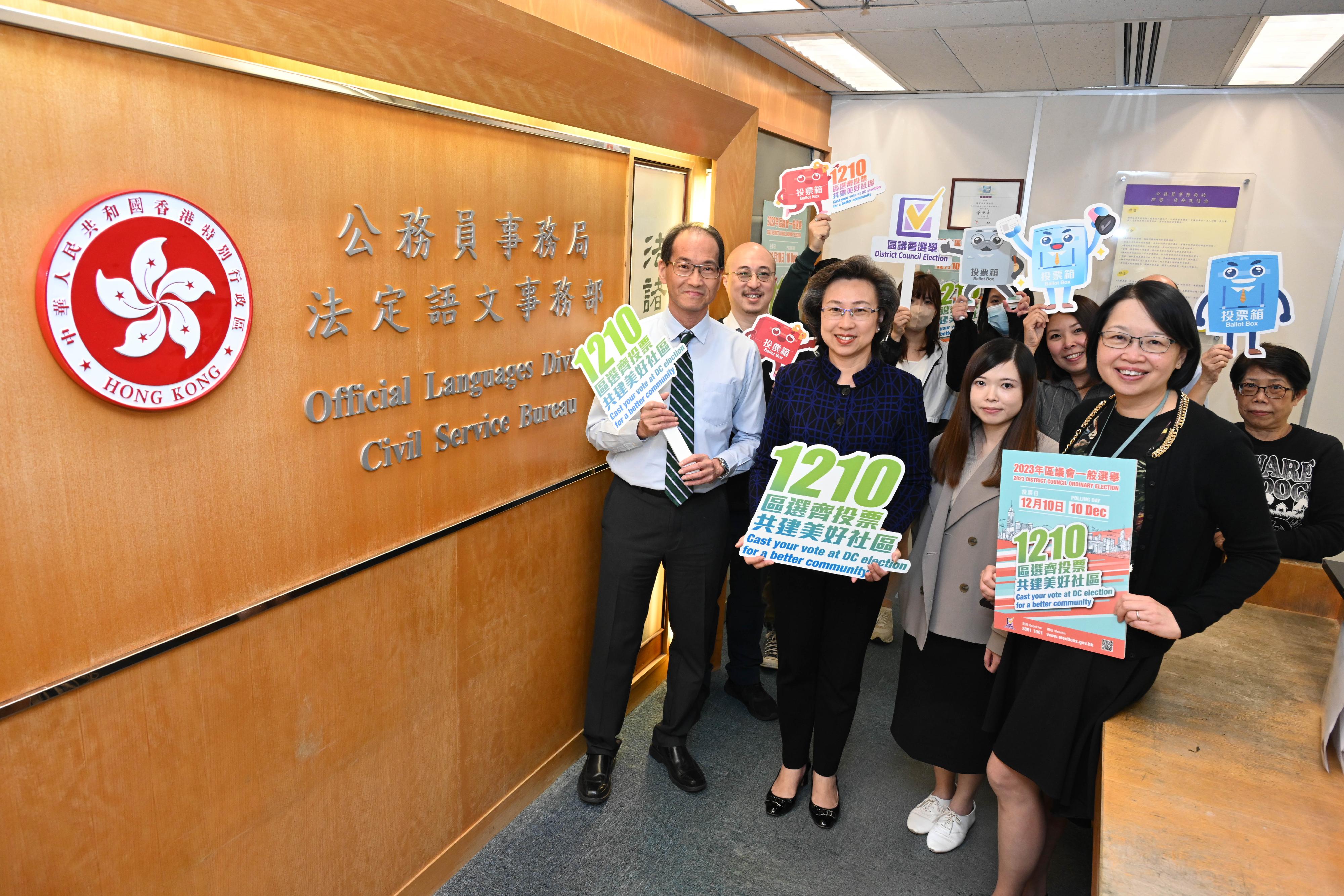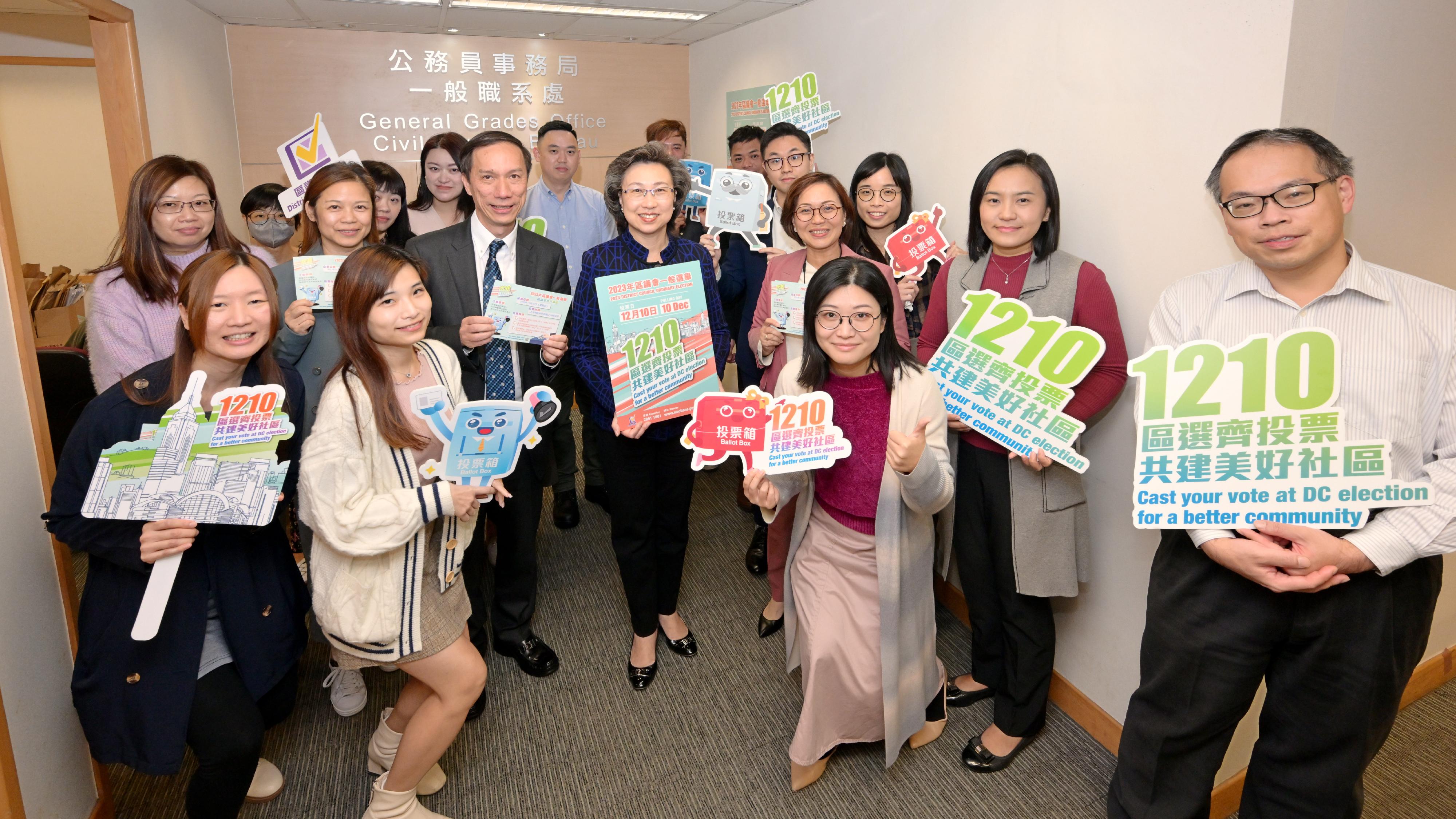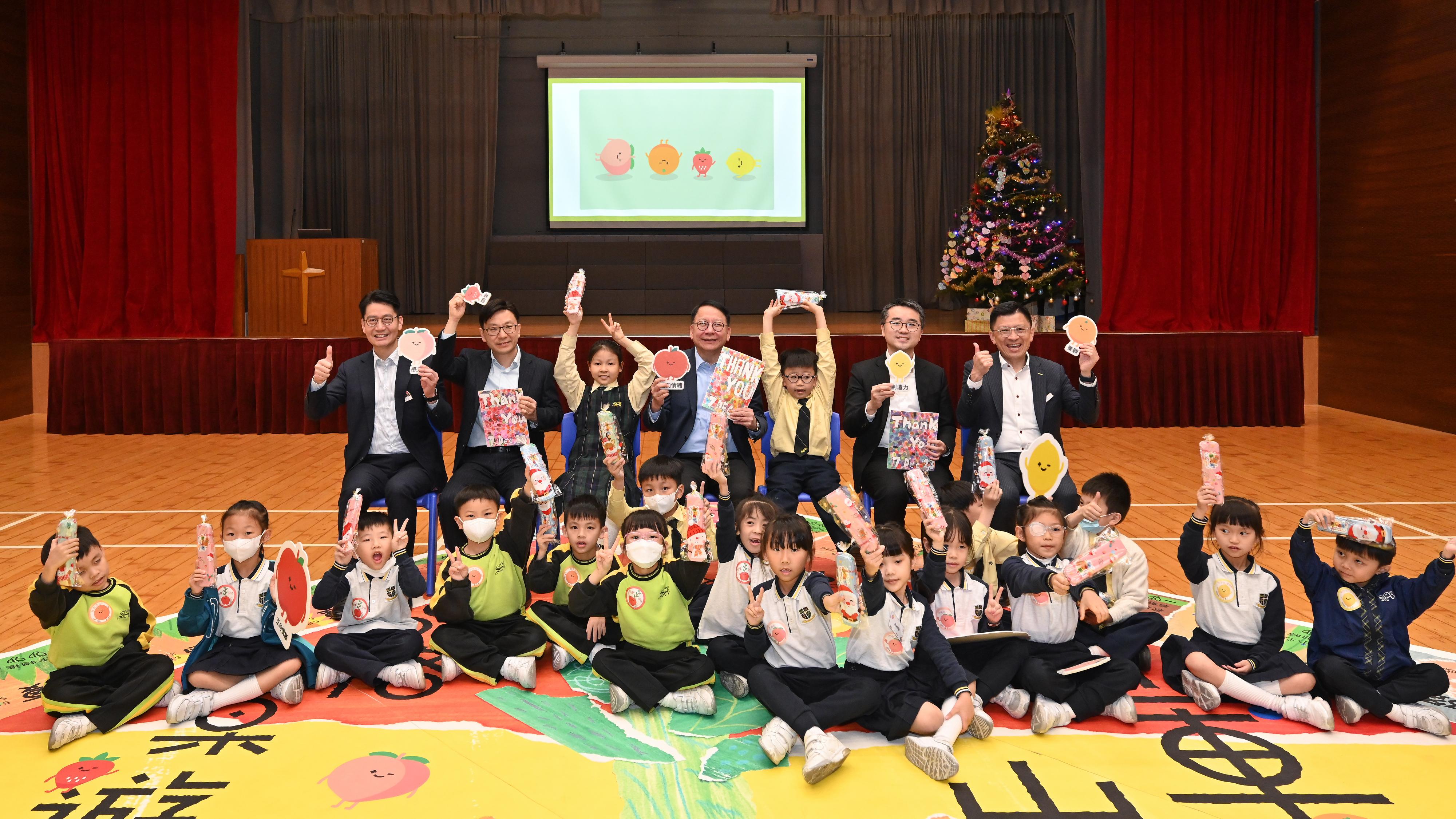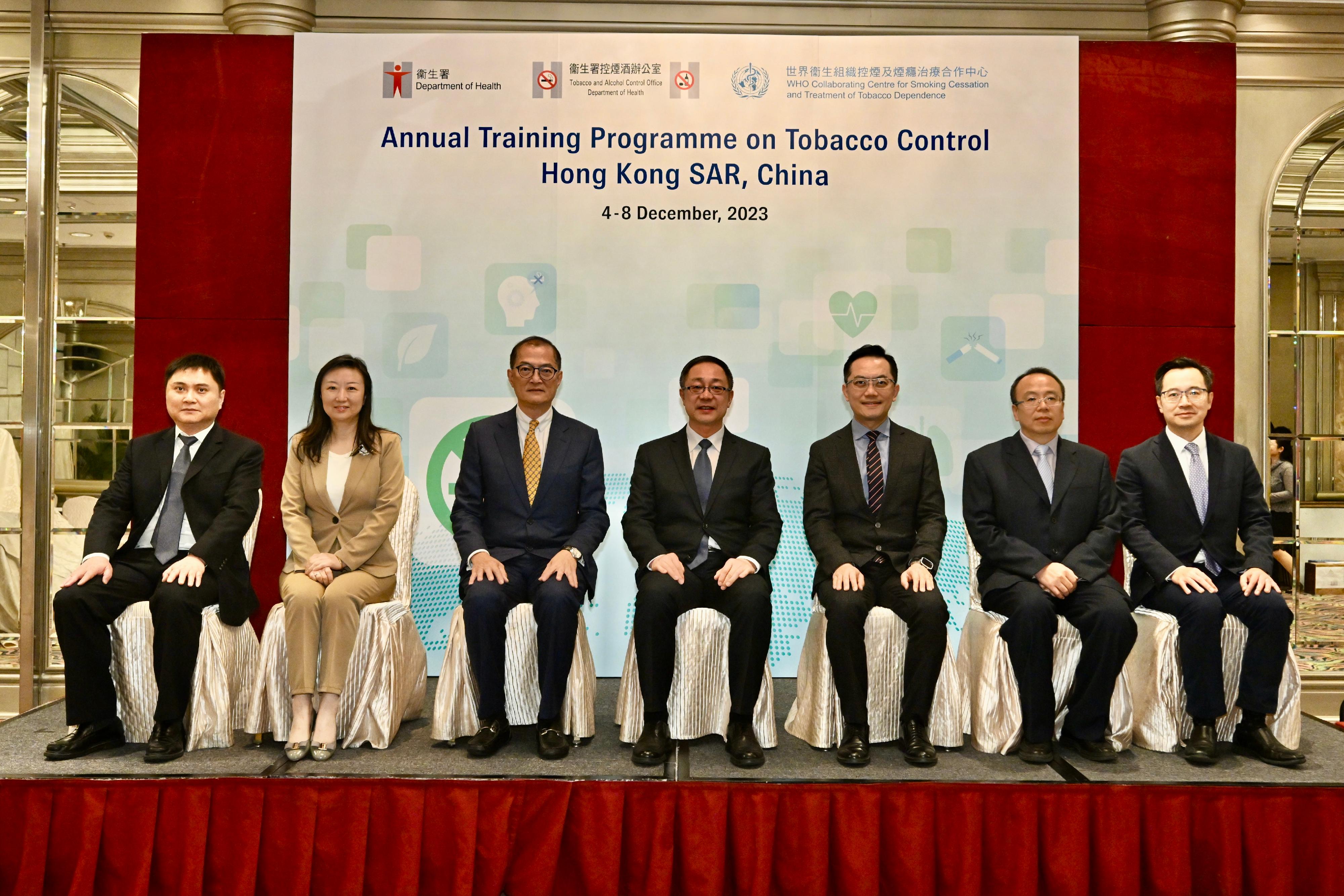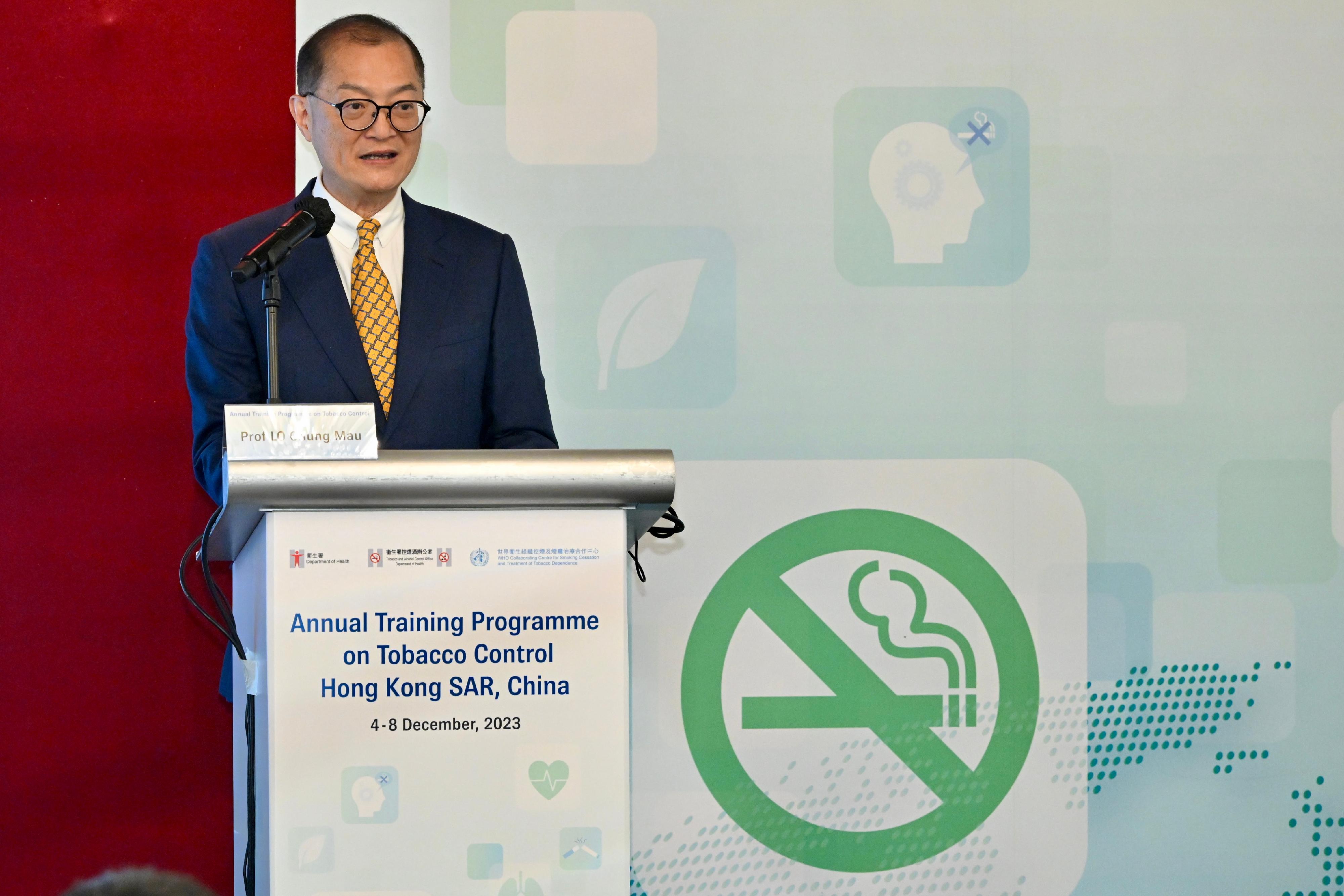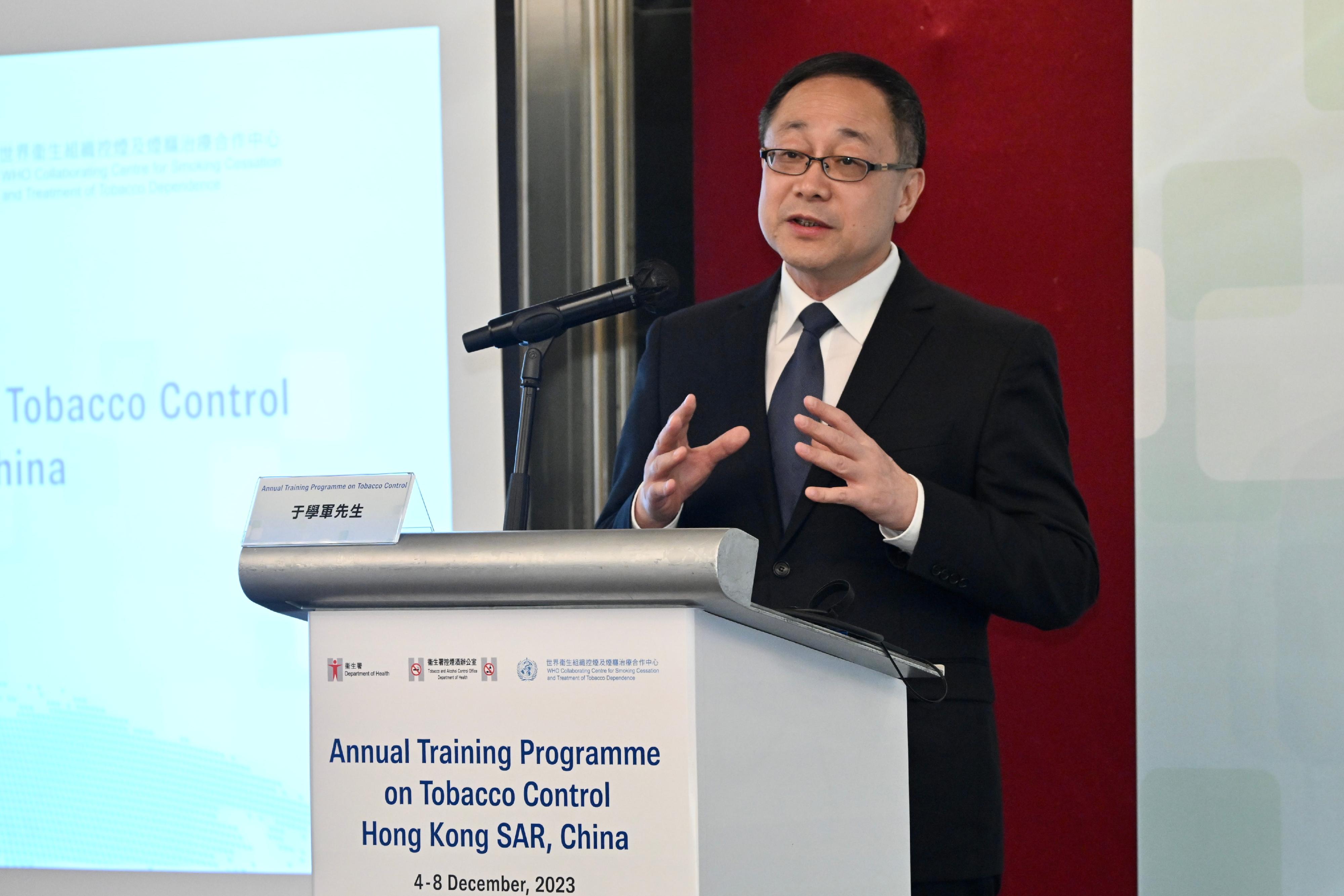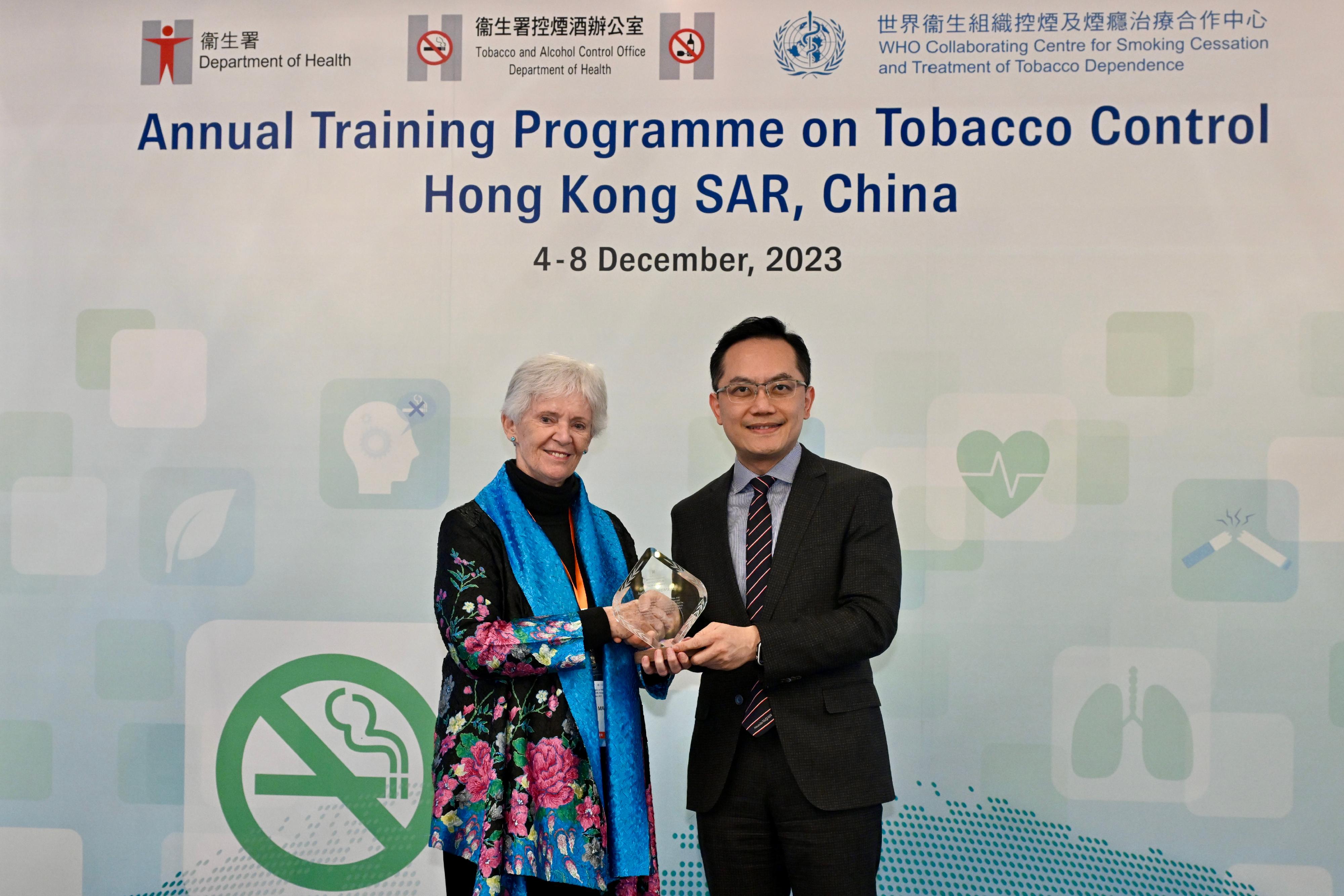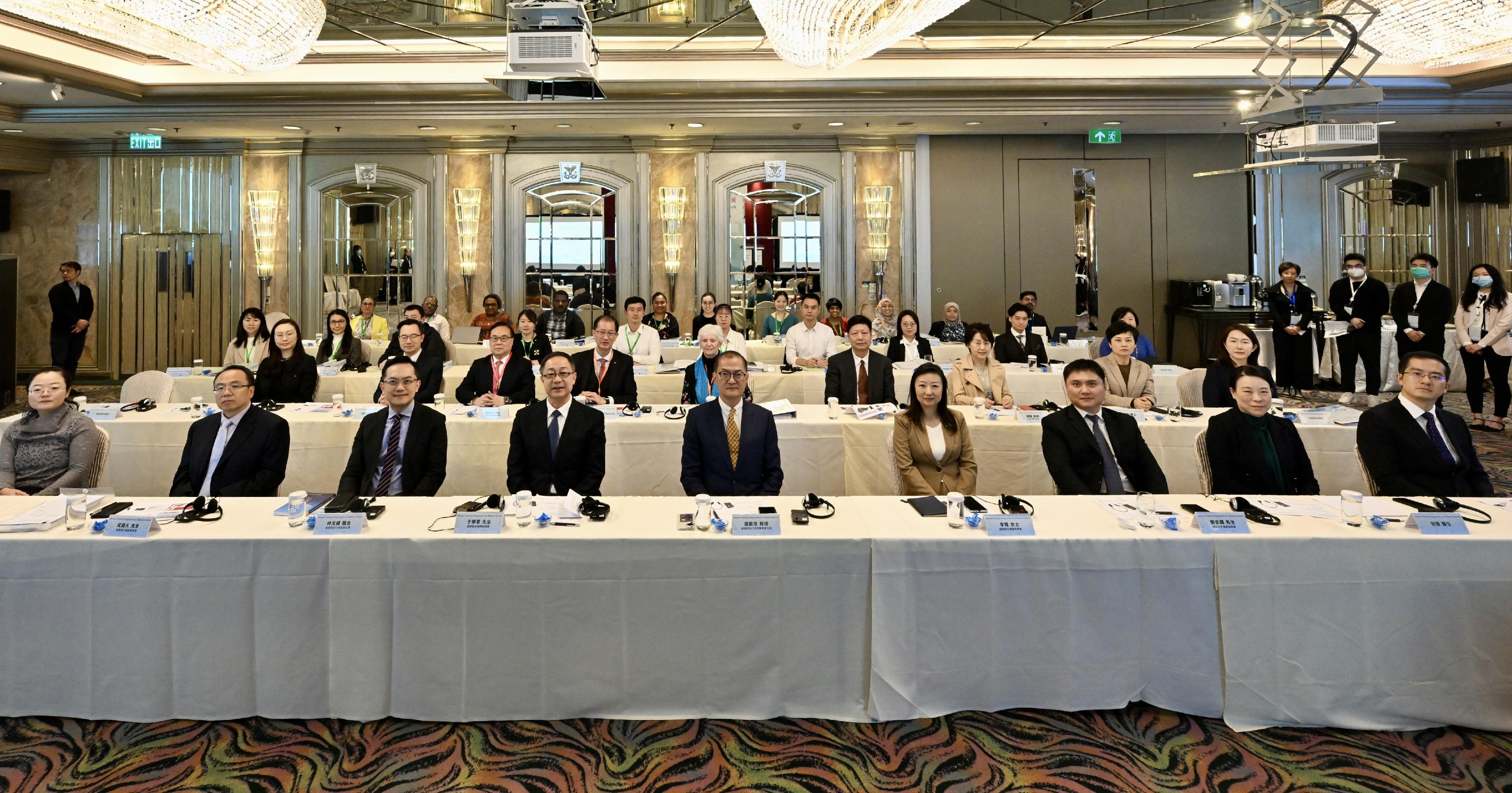CSB actively promotes support for DC election and voting together (with photos)
With only three days to go before the District Council (DC) election, the Secretary for the Civil Service (SCS), Mrs Ingrid Yeung, today (December 7) visited the offices of the Official Languages Division and the General Grades Office of the Civil Service Bureau (CSB) at Queensway Government Offices (QGO) and Rumsey Street Multi-storey Carpark Building in Sheung Wan respectively to distribute promotion leaflets on the DC election to colleagues to appeal to them to vote on December 10 so as to choose their ideal candidates for a better community.
Mrs Yeung said, “The DC election is an important step towards an improved district governance structure and of great significance since it relates to community building and the well-being of the public. The reform of DCs is an important policy initiative of the Government. Civil servants have a responsibility to give support to it and also a civic responsibility to vote. They should set a good example and cast their votes in this DC election to discharge their ‘dual responsibilities’.
“Having those who are most capable in assisting the Government to better keep tabs on the districts and serve the public wholeheartedly be returned as DC members can make the governance and the work of civil servants smoother. Colleagues, no matter in the capacity of civil servants or members of the public, should support it.”
As the polling day is approaching, Mrs Yeung called on colleagues to learn more about the candidates of the geographical constituencies they belong to and their election platforms so as to elect the ideal candidates to serve the community.
The CSB has been working in a concerted manner since early November and has spared no effort in the publicity and promotion of the DC election. The Chief Secretary for Administration and the SCS earlier met with representatives from the four civil service central consultative councils and the four major service-wide staff unions to appeal to them to support the DC election. They also jointly appear in a video and went to multiple floors of the QGO to disseminate to colleagues the important message of supporting the DC election and voting together.
Moreover, the CSB Volunteer Team distributed leaflets for promoting the DC election to colleagues at various government buildings during lunch breaks and when they get off work. The team also went into the community and encouraged members of the public to cast their votes in the DC election.
In addition to visiting the two offices today, Mrs Yeung had earlier visited the Joint Secretariat for the Advisory Bodies on Civil Service and Judicial Salaries and Conditions of Service and the Public Service Commission, as well as the CSB’s workplaces on various floors of the Central Government Offices to appeal to colleagues to vote as early as possible on the polling day.
The CSB also introduced various promotional items for the DC election, including a campaign to gather civil servants’ united support for the DC election, as well as a screen saver and a set of stickers for messaging apps, to spread the message of supporting the DC election and voting together to more colleagues through online and offline channels, and encourage them to take part in the promotion of DC election with one heart.
Mrs Yeung said, “All these arrangements are meant to raise the awareness of civil servants and the general public about the DC election, and to encourage them to pay an effort to facilitate the development of district affairs and people’s livelihood through ‘each casting one vote on one candidate’ to elect those who do practical work as DC members.”
The DC geographical constituencies, information on candidates, voting arrangements, etc, for the 2023 DC election are available on the thematic website (www.elections.gov.hk). The polling hours of DC geographical constituency ordinary polling stations on the polling day will be from 8.30am to 10.30pm.


